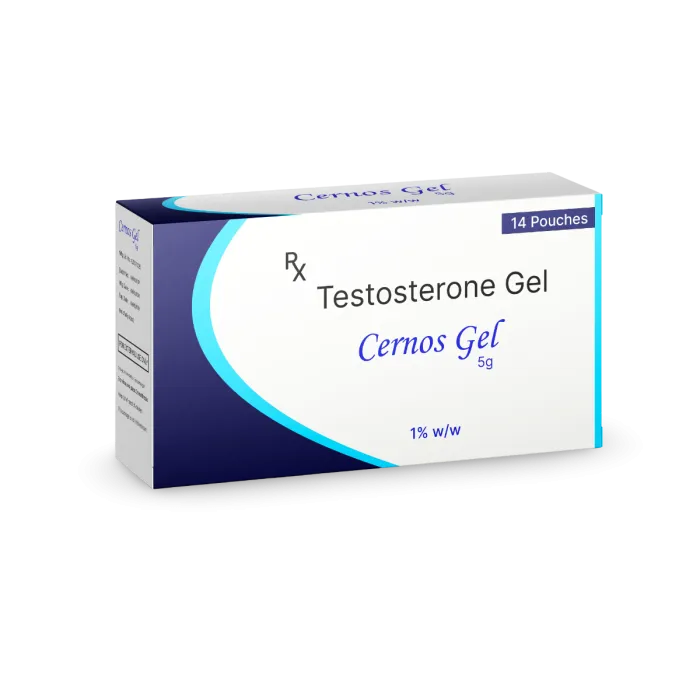Alcohol abuse negatively impacts nearly every aspect of your health. The health of your hormones is no exception.
Excessive alcohol consumption can cause alterations in Testosterone levels.
Muscle mass loss and other health problems can occur in males with low Testosterone levels.
Women also generate a small amount of Testosterone in their ovaries.
Diminished Testosterone levels in women can result in lower libido and brittle bones.
This article focuses on the question, ‘Will Quitting Alcohol Increase Testosterone?’
Continue reading to discover the relationship between alcohol and Testosterone levels.
Will Quitting Alcohol Increase Testosterone
The most important male sexual hormone is Testosterone. It plays a crucial role in the development of sperm and the growth of muscle and bone in men.
Testosterone synthesis in men requires three glands: the anterior pituitary gland, the hypothalamus, and the testes.
Alcohol may affect the production of Testosterone by interfering with all three glands.
Quitting alcohol can help repair some brain and testicular damage, but some damage may be irreversible.
Recovery can take months or years, depending on the quantity and duration of alcohol consumption.
Your doctor may prescribe you Testosterone-boosting pills to help you maintain your Testosterone levels.
To better understand the relationship between alcohol and Testosterone, read Alcohol and Testosterone: Exploring the Connection in Men
Save up to 90% on your medicine bills

Cernos Gel 1%w/w

Cernos 40 Mg Soft Gelatin Capsule

Sustanon 250 Injection

Carmel Organics Ashwagandha Extract Tablets
What Effect Does Alcohol Have on Testosterone
The body converts alcohol into ethanol. A vital coenzyme responsible for Testosterone production decreases as your body metabolizes ethanol.
With each drink, your Testosterone production decreases.
A study in mice found that ten weeks of alcohol abstinence partially reversed male reproductive system damage.
Although animal studies don’t often apply to humans, this study suggests a partial recovery.
More study is needed to determine how much the reproductive system can mend itself after quitting alcohol.
A study showed that drinking alcohol can lower Testosterone after 30 minutes.Another study examined Testosterone levels in healthy men versus chronic alcoholism patients who drank a pint of whiskey daily for 30 days.
The healthy mens’ Testosterone levels dropped by the third day and reached alcoholic levels by the end of the month.
Your body will gain additional pounds of fat with excessive alcohol consumption.
These fat cells produce Estrogen, which can neutralize or eliminate any Testosterone produced by the body.
As alcohol abuse alters your sleep schedule, your body produces even less Testosterone. When you get up and start drinking again, the cycle repeats.
Men who consume excessive alcohol are more likely to experience:
- Erectile Dysfunction
- Lowered Testosterone levels
- Low libido
Men who drank heavily had testicles that were slightly but considerably smaller than those who did not.
Moderate alcohol consumption doesn’t seem to harm Testosterone or reproductive health.
An overall healthy lifestyle can aid recovery. Avoiding junk food, having a balanced diet, exercising, and getting enough sleep will help you maintain hormone levels.
To naturally improve your stamina in bedroom, read Exercises To Boost Stamina During Sex

What Effect Does Alcohol Have on Sperm
Alcohol compromises the functionality of testicular Sertoli cells. These cells are necessary for the maturation of sperm.
According to studies, fifty percent of frequent drinkers had a spermatogenic arrest, compared to only twenty percent of men without alcoholism.
A 2016 study of 16,395 healthy males found that heavy drinking may harm sperm volume and morphology. Moderate alcohol consumption had no visible effect on either variable.
A research of 8,344 healthy men from Europe and the United States discovered moderate alcohol consumption did not affect sperm quality.
Some research suggests that heavy drinking before fertilization may also increase the risk of congenital disabilities in the offspring.
Conclusion
In the search for better health and vitality, alcohol consumption and Testosterone levels are important.
Alcohol negatively affects hormonal balance, particularly Testosterone production.
The complex relationship between alcohol and Testosterone affects both genders.
Quitting alcohol may restore Testosterone levels, but the extent varies.
Caution is advised since some damage may be irreversible.
Adopting a balanced lifestyle, including a healthy diet and regular exercise, can aid in maintaining optimal hormone levels.

Frequently Asked Questions
Does quitting alcohol increase Testosterone levels?
Yes, quitting alcohol can potentially lead to increased Testosterone levels. Excessive alcohol consumption has been linked to alterations in Testosterone production. While some damage might be reversible, complete restoration of Testosterone levels may take months or even years. Buy Now
Can alcohol consumption affect both men’s and women’s Testosterone levels?
Alcohol consumption can affect both men’s and women’s Testosterone levels. Testosterone plays a crucial role in both genders, influencing various aspects of health. Diminished Testosterone levels in men result in muscle mass loss and other health issues. Similarly, women may experience lower libido. Buy Now
How does alcohol consumption impact one’s sperm quality?
Alcohol consumption can negatively impact sperm quality and production. Frequent and heavy drinking may lead to spermatogenic arrest, interrupting the proper development of sperm and potentially leading to low sperm concentration in semen. Buy Now
Does moderate alcohol consumption affect Testosterone levels?
Moderate alcohol consumption doesn’t significantly harm testosterone levels or reproductive health. However, it’s important to note that alcohol abuse can alter sleep patterns, reducing Testosterone production over time. Buy Now
Can alcohol-induced hormonal changes lead to other health issues beyond Testosterone levels?
Yes, alcohol-induced hormonal changes can also lead to other health issues. Over time, excessive alcohol intake can increase mental illness and cancer risk. Alcohol consumption can also disrupt sleep, cause weight gain, and produce excess estrogen in fat cells, which can cause Erectile Dysfunction, poor libido, and other health issues. Buy Now
Cheap Medicine Shop only refers to credible, authoritative sources for our content. If you’re curious about how we ensure the integrity of our content, we encourage you to read our Content Information Policy.














